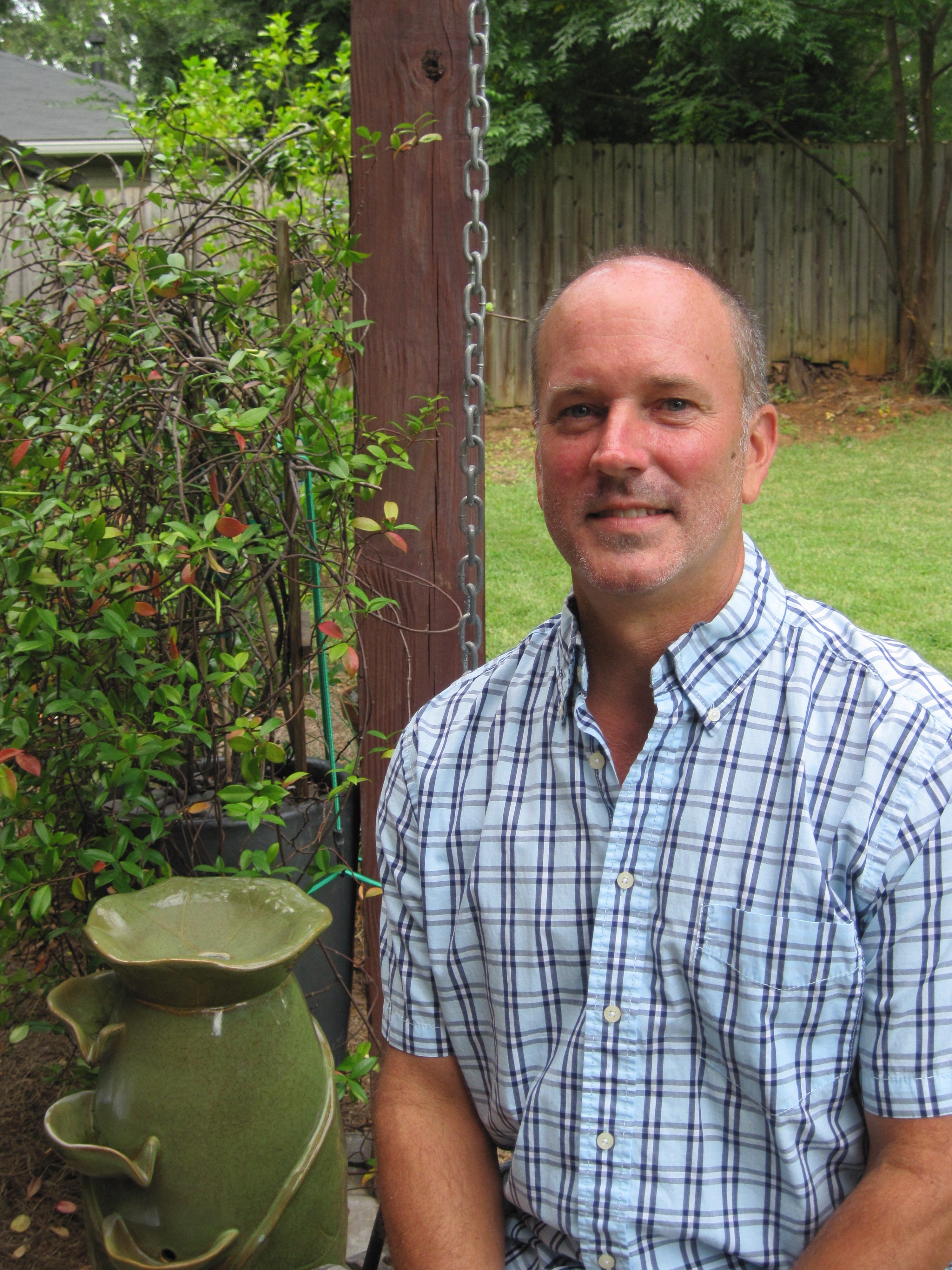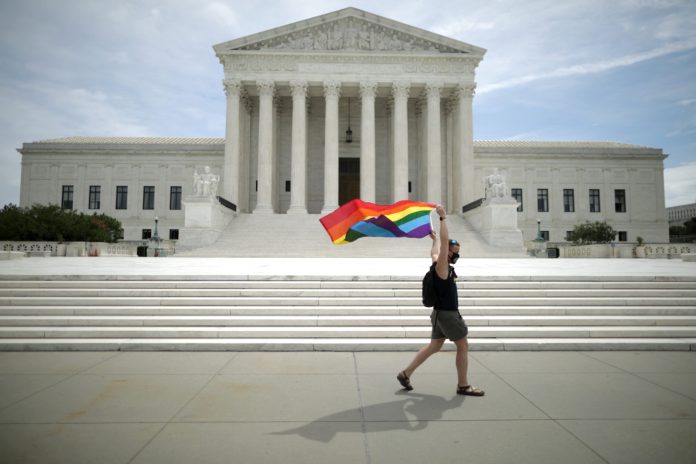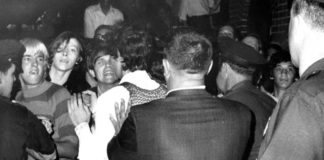WASHINGTON – A year after the Supreme Court handed down a landmark decision barring workplace discrimination against LGBTQ employees, gay rights advocates continue to benefit from the aftershocks as they simultaneously brace for a more challenging legal environment ahead.
In a ruling with far-reaching implications for education, housing and health care, the Supreme Court sided last June with three employees who were fired because of their sexual orientation or gender identity. The 6-3 decision, written by conservative Associate Justice Neil Gorsuch, is already having a big impact beyond the workplace.
The opinion was noted in an executive order President Joe Biden signed on his first day in office prohibiting discrimination in the federal government.The Justice Department concluded in March that its holding applies broadly to other laws. And two appeals courts have recently relied on the case to strike down bans on transgender students using school bathrooms aligned with their gender identity.

TOP: Joseph Fons, holding a Pride flag, walks back and forth in front of the Supreme Court after the high court ruled LGBTQ people cannot be disciplined or fired based on their sexual orientation or gender identity on June 15, 2020, in Washington, D.C. BOTTOM: Protesters and supporters gather in front of the Supreme Court on Oct. 8, 2019, in Washington as the justices hear three challenges from New York, Michigan and Georgia involving workers who claim they were fired because they were gay or transgender.
LEFT: Joseph Fons, holding a Pride flag, walks back and forth in front of the Supreme Court after the high court ruled LGBTQ people cannot be disciplined or fired based on their sexual orientation or gender identity on June 15, 2020, in Washington, D.C. RIGHT: Protesters and supporters gather in front of the Supreme Court on Oct. 8, 2019, in Washington as the justices hear three challenges from New York, Michigan and Georgia involving workers who claim they were fired because they were gay or transgender.
CHIP SOMODEVILLA/GETTY IMAGES and JACK GRUBER/USAT
“I have had time to process everything and I’ll be honest: It still feels amazing,” Gerald Bostock, one of the three employees whose lawsuits led to the blockbuster ruling last year, told USA TODAY in an interview. “I’m just thrilled every day I think about the impact that we have made and the impact we are making currently.”
While the court’s ruling in Bostock v. Clayton County has been heralded by gay rights groups as the most important outcome since the 2015 decision legalizing same-sex marriage, the celebration has been muted by other issues on the horizon. A growing number of states are passing laws restricting LGBTQ rights and a more conservative Supreme Court is signaling its desire to strengthen religious freedom protections.
Those competing interests – LGBTQ rights and the First Amendment’s protection of religious freedom – will come head to head in one of this year’s most closely watched cases at the high court. In that dispute, a Catholic charity has declined to honor Philadelphia’s requirement that it screen same-sex couples as potential foster parents because the mandate runs counter to its religious beliefs.
A decision in the case is expected this month and observers believe the court, with its 6-3 conservative majority, will side with the Catholic group – giving religious advocates a big victory since the justices absolved a Colorado baker of discrimination for refusing to create a wedding cake for a same-sex couple in 2018.
“The Bostock court – it just punted on religious freedom,” said Kim Colby, director of the Center for Law and Religious Freedom at Christian Legal Society.
Colby and other advocates are concerned about the impact the Bostock decision may have on federal and state laws that do not have clear carve-outs for religious beliefs. That’s another area of conflict experts predict will work its way to the high court in coming years.
“The court, the majority, really was negligent in its responsibility to religious employers and others that would be impacted by the ramifications,” Colby said.

The majority opinion in Bostock was ostensibly limited to Title VII of the Civil Rights Act of 1964, which bars discrimination in the workplace based on race, color, national origin, sex and religion. Gorsuch, joined by Chief Justice John Roberts and four liberals, said that sexual orientation and gender identity necessarily involve a person’s sex. Because of that, they reasoned, the law must prohibit LGBTQ discrimination even if it doesn’t explicitly say so.
‘Your President has your back’: President Biden addresses transgender Americans
President Joe Biden urged Congress to pass the Equality Act to protect transgender Americans’ rights.
Associated Press, USA TODAY
Gorsuch asserted that the ruling was limited to employers and that it did not “purport to address bathrooms, locker rooms, or anything else of the kind.”
But the broader implications of the decision have already been felt in other areas, including education, because other laws also ban discrimination on the basis of “sex.” A years-old battle over whether transgender students may use school bathrooms that are consistent with their gender identity is now back at the Supreme Court – awaiting a decision from the court about whether it will hear the case – and the lawyers representing the students contend the ruling in Bostock should determine the outcome.
“In Bostock this court held that discrimination against a person because they are transgender is discrimination ‘because of…sex'” in employment settings, lawyers representing Gavin Grimm, who as a transgender boy was denied the ability to use the boys’ bathroom in school, told the court in late May. “The same reasoning applies” to discrimination in education, they argued.

Citing Bostock, a federal court in Idaho last summer struck down a state law prohibiting transgender girls from playing on women’s athletics teams. An appeals court is now considering the case.
Similar language banning discrimination on the basis of sex – but not explicitly sexual orientation or gender identity – is found in laws dealing with housing, health care and other areas. Experts say challenges based on those laws will be at the Supreme Court in coming years, forcing the question of how broadly to apply the Bostock ruling.
“It’s hard to overestimate the importance of Bostock, frankly, because it does bleed into all these other statutory areas and even maybe under the Constitution and so it really is a stunning additional gain on top of Obergefell,” the 2015 case legalizing same-sex marriage, said Georgetown University law professor Paul Smith.

Gerald Bostock, now 57, worked as a child welfare advocate in Clayton County, Georgia, for a decade when he joined a gay recreational softball league. Soon after, other members of the community made disparaging comments about his participation in the league and, he said, he was fired for conduct “unbecoming” a county employee.
His subsequent lawsuit was one of three argued together at the Supreme Court in 2019, though he is the only surviving plaintiff. Donald Zarda, a gay skydiving instructor who was fired after revealing his sexual orientation, died in 2014. Aimee Stephens, a transgender funeral director, died a month before the high court ruled in the case.


Gerald Bostock, shown at top and also seen here with his softball team in 2013, was fired from his job for “unbecoming” conduct when people learned he was participating in the gay recreational league.
Gerald Bostock, shown left and also seen here with his softball team in 2013, was fired from his job for “unbecoming” conduct when people learned he was participating in the gay recreational league.
Courtesy Buckley Beal law firm
Bostock, who now works at a hospital, had to give up the softball team to focus on the suit – but he hasn’t dropped his advocacy. He has used the notoriety of having his name on a game-changing Supreme Court decision to lobby for legislation in Georgia and Washington.
“We still have to work harder to do better. There’s still work to be done,” Bostock said. “Knowing that I’m a part of making this happen – it really helps me sleep better at night.”
Other conservatives on the high court, in a dissent written by Associate Justice Samuel Alito, slammed Gorsuch’s majority opinion and said that if Congress wanted to protect LGBTQ people from discrimination in Title VII then lawmakers would have done so in the law. Alito also predicted the majority opinion would have a wide-ranging impact – and that has proven correct.
One area that both sides agree is likely to drive future lawsuits: The conflict between gay rights and religious freedom. The Civil Rights Act includes an exemption for religious employers, but Alito wrote that a transgender job applicant at a religious school, for instance, might be able to sue for not being hired under the Bostock decision.
“The biggest challenges that will be coming up, at least in terms of federal issues, will likely…be on the religious exemptions,” said Tom Mew, an attorney at the Buckley Beal law firm who represented Bostock. “That may be the next staging ground, if you will, for where some of this is going to come out.”
The court’s conservative majority, bolstered by three nominees from former President Donald Trump, has signaled a desire to protect religious freedom. The justices have taken a strong position on the issue in the past year by striking down state COVID-19 restrictions that blocked worship in churches and synagogues.

One of the reasons gay rights advocates and legal observers are confident appeals testing the limits of the Bostock decision are on the way to the Supreme Court is because states have been busy passing laws that move in the other direction.
“I don’t know that people got the message,” said Kristen Prata Browde, co-chair of the National Trans Bar Association. “It’s beyond concerning that with each day lawyers in our community are having to file actions to reverse legislative attempts…that would eviscerate every one of the protections that have been won in the past.”
Tennessee Gov. Bill Lee, a Republican, signed a law in March requiring transgender students to compete in school sports according to their sex assigned at birth. Alabama Gov. Kay Ivey, also Republican, signed a similar law in April. Arkansas became the first state in the nation to ban gender-affirming treatments for transgender minors, with state lawmakers overriding a veto of Republican Gov. Asa Hutchinson.
Nearly two dozen laws limiting LGBTQ rights have been approved in at least nine states this year, surpassing the count in 2015 – which previously had the most such laws, according to the Human Rights Campaign, an LGBTQ advocacy group. Several appear designed to draw lawsuits that may bring new questions to the Supreme Court.
“If you’re LGBTQ advocate, you’re worried about the state laws on transgender issues, where they’re pushing and pushing,” said Smith, the Georgetown law professor. “It’s a newer area and in some ways more complicated than just naked homophobia in the workplace.”
Published
Updated








